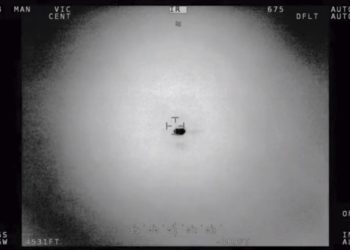As the year 2022 drew to a close, the subject of UFOs continued to captivate the world’s attention. From the release of government reports to the emergence of new witness accounts, the topic remained a hotly debated and mysterious one. Now in 2023, many wonder what new developments and revelations will surface in the world of UFOs. Will there be more sightings? Will governments share further information? Or will the mystery only deepen? One thing is certain – the subject of UFOs will continue to fascinate and intrigue us as we move forward and as more people reveal previously unknown details about the subject.
And as we wait for the great next step in UFOlogy to happen, here are ten things people in 2023 probably do not know about UFOs.
Ten things you probably don’t know about UFOs in 2023
- The US government has admitted to studying UFOs through the release of declassified documents and videos, but the nature and origin of these sightings remain a mystery.
- UFO sightings have been reported by military personnel, commercial pilots, and civilians across the world, with some countries, such as the U.S., having a particularly high number of reported sightings.
- Despite the popular perception of UFOs as extraterrestrial spacecraft, there are many other possible explanations for these sightings, such as weather phenomena, misidentifications of aircraft or natural objects, and even psychological factors.
- The US Air Force first used the term “UFO” in the 1950s, but reports of unidentified flying objects date back to ancient times, with some ancient artworks depicting strange aerial objects. As per Wikipedia, the term “UFO” (or “UFOB”) was coined in 1953 by the United States Air Force (USAF) to serve as a catch-all for all such reports.
- The scientific study of UFOs, known as ufology, has been controversial and often marginalized within the scientific community, but some researchers continue to investigate UFO sightings and related phenomena. Despite this controversy, it is expected that in 2023, Ufology will finally enter “new” waters, where science, the military, and the public see it as a serious subject worthy of attention.
- The US government’s recent disclosures regarding UFOs have sparked renewed interest in the subject, with some private organizations launching their own investigations and research programs. NASA is studying UFOs, and so is the Pentagon.
- Some ufologists and conspiracy theorists believe that the government is hiding evidence of extraterrestrial life and UFOs, but no concrete evidence supports these claims. Despite this fact, videos that have been released (leaked) in the last few years show that there are objects in our skies that completely defy explanation. Some of these objects are dubbed transmedium UFOs, and the Pentagon, for example, has taken great interest in them.
- The search for extraterrestrial intelligence (SETI) continues to investigate space signals that may indicate intelligent life’s presence. Still, so far, no conclusive evidence of extraterrestrial intelligence has been found. Nonetheless, many anomalies have been identified in outer space, and some experts have not ruled out that signals such as FRBs could be of an intelligent, extraterrestrial nature.
- Some scientists speculate that the discovery of microbial life on other planets or moons within our solar system could be a precursor to the discovery of more advanced extraterrestrial life.
- The study of UFOs and the search for extraterrestrial life continue to capture the public’s imagination and inspire new scientific inquiry, but the search for answers remains ongoing. However, the UFO study is heading in the right direction, and 2023 might be when all stigma related to UFOs is set to disappear.
References:
- “UFOs and Extraterrestrial Life: A Brief History” by Emily J. Willingham, Scientific American, May 2021.
- “UFO Sightings Around the World” by Kelly Kehoe, National Geographic, July 2021.
- “The Science of UFOs: How to Study a Flying Saucer” by Rafi Letzter, Live Science, June 2021.
- “The Hunt for Alien Intelligence Is Rampant With False Positives. But That’s OK.” by Nadia Drake, National Geographic, May 2021.
PLEASE READ: Have something to add? Visit Curiosmos on Facebook. Join the discussion in our mobile Telegram group. Also, follow us on Google News. Interesting in history, mysteries, and more? Visit Ancient Library’s Telegram group and become part of an exclusive group.











